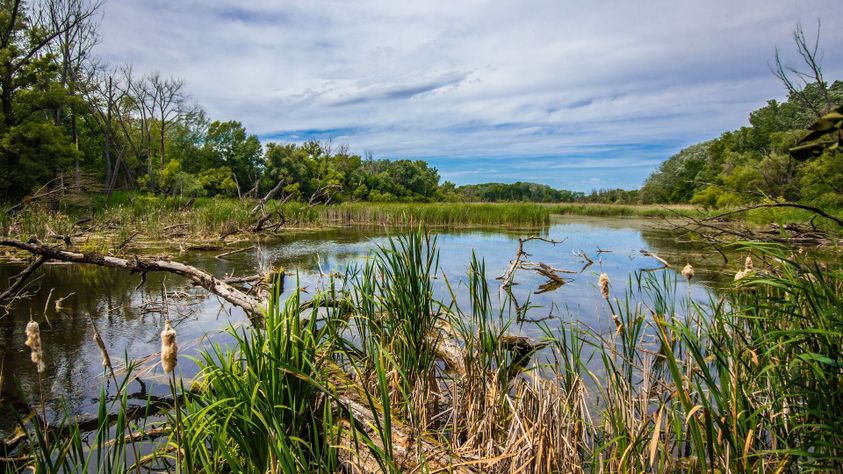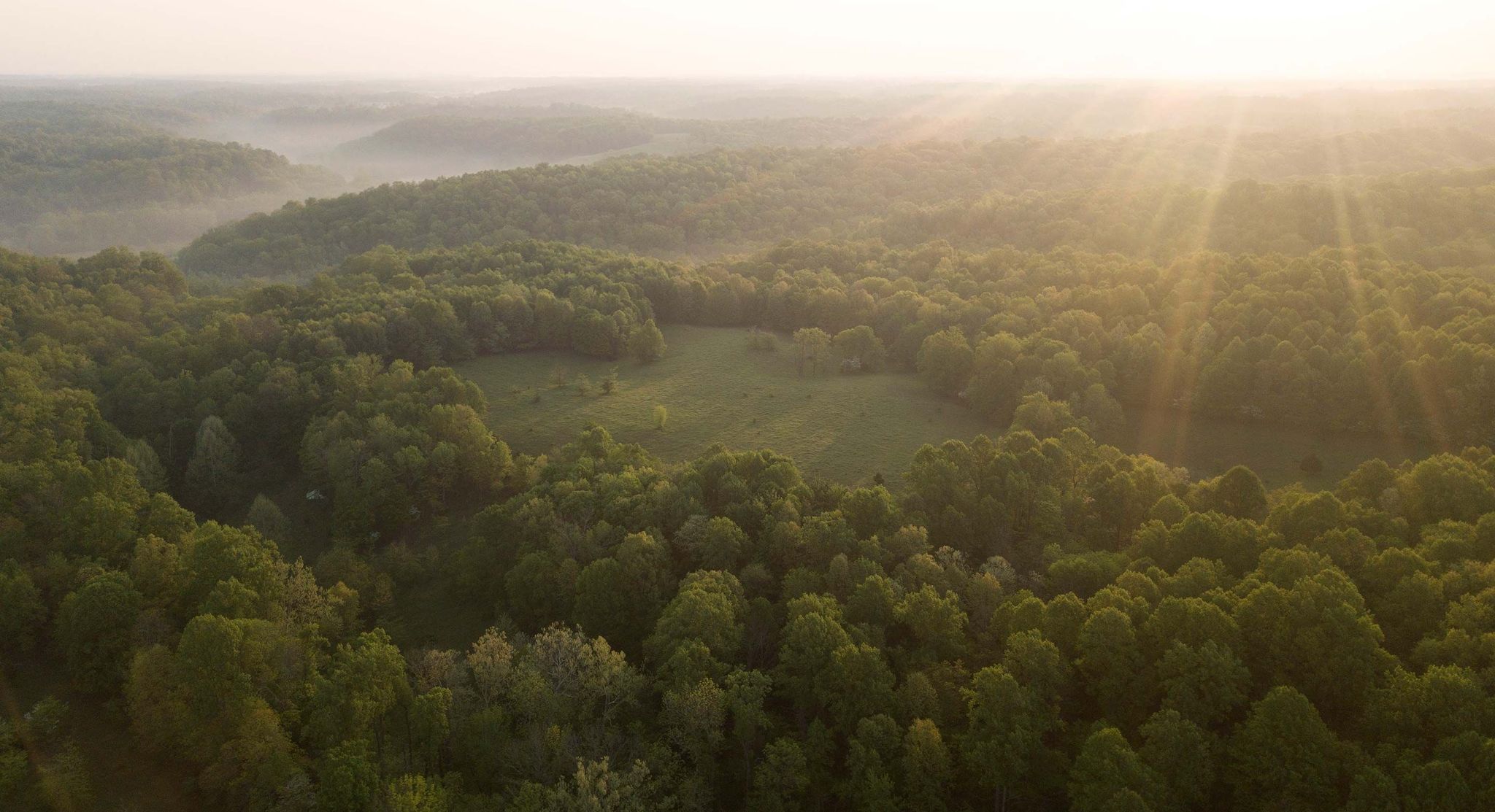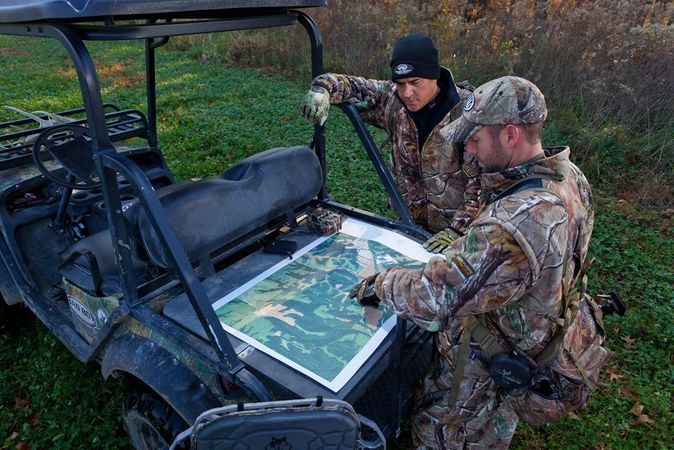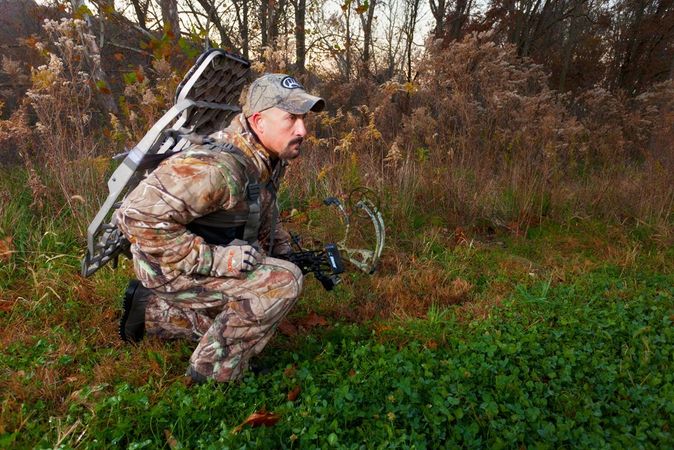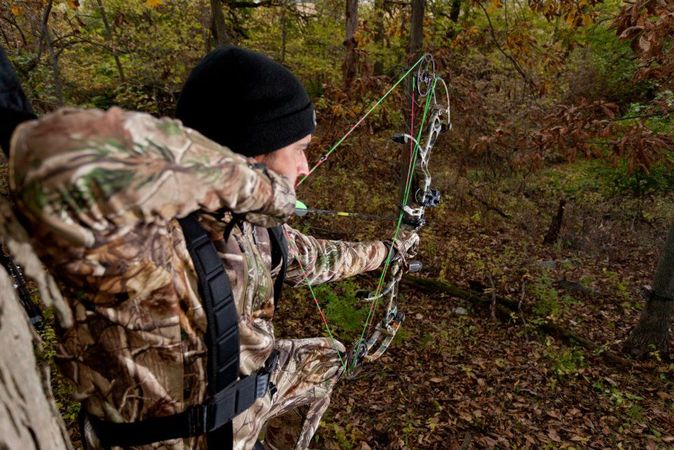Last weekend, kicking around a property where we typically hunt waterfowl throughout the late fall and winter, we watched as cows grazed on a hay bale, the surrounding pasture grass long dead of thirst, and were shocked to see more dust fill the air with every bite. When a bale of hay is so dry that it begins crumbling to dust, it’s time to call up some ancient rituals that may or may not bring rain. Like a rain dance, or finding a descendent of the totally odd and obscure Charles Hatfield (of course, Hatfield went to his grave with the chemical he used to “make it rain”).
Two weeks ago, in South Dakota, we were excited to hear and see several flocks of Sandhill cranes heading south on what we thought was the tip of the migration. It was a fairly warm day though nearing November with surely a cold snap on the way that would push the remaining bunches of ducks, geese and other cranes out of Canada and down the Mississippi Flyway.
Even the river on the aforementioned duck hunting ground looked like it was struggling to move. It’s fed by a lake that drops its water level each winter, causing downstream bottoms to fill with water. Also the rains that typically occur this time of year help in keeping the wetlands wet. If you’re as dry as many areas of the country, there’s hope yet. If you actually have water, well, you might be in for the waterfowl season of your life.
Since we cannot control Mother Nature, let’s consider some other options if the worse case scenario - no rain throughout the winter - should occur. What are some of the measures we can take to lessen the heartache? And, while we love nothing more than being able to hunt on our own property, we’ll start looking to the big waters to kill ducks and geese.
Go Ahead and Touch Up Your Blind
We’re throwing in optimism here. Right now, while it’s dry, is a great time to touch up the duck blind. Clipping and dragging limbs or cane in waders is awful hard, especially in the heat. Now at least it can be done from the comfort of Carhartt’s and boots. In the warmer climates, this also means less chance of running across a snake.
Plant Sparingly
If you typically plant your duck hole, do so sparingly this year. Or, if you have the means to water a dry field, you’re way ahead of the pack. In a recent blog on the Whitetail Properties site, we talked about doing just that. However, if dust fills your mouth after taking just a few steps, hold off on planting. It’s still fairly warm and wouldn’t be too late for seeds to germinate in the next week or two. Watch the forecast and plan accordingly.
Map Out Big Water
Just in case it doesn’t actually rain, go ahead and make a Plan B. You know that ducks go to water, so think about the possibilities in your area, including lakes, river and streams - bodies of water that only a 100-year drought could dry up. Find islands in the middle of lakes. Should a hard freeze occur, the middle of the lake is going to be the spot.
Short of a rain dance, we are watching the weather, watching the skies for ominous clouds and hints of the migration. Both are staying away for the time being, but surely the inevitable must happen. It could be one of those seasons that starts out horribly slow and picks up to a fast-hunt pace by mid December. We shall see.


